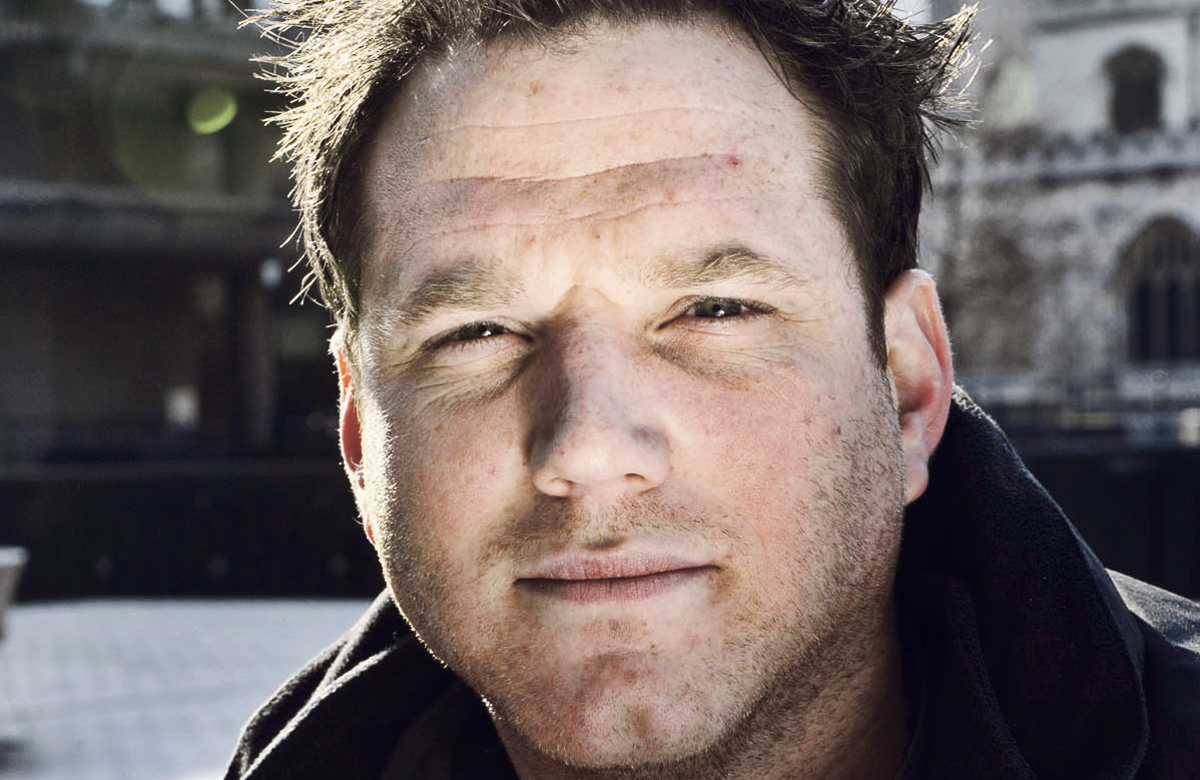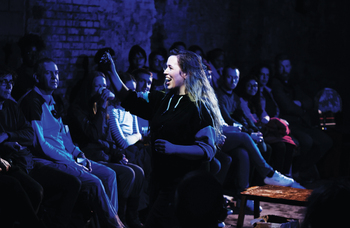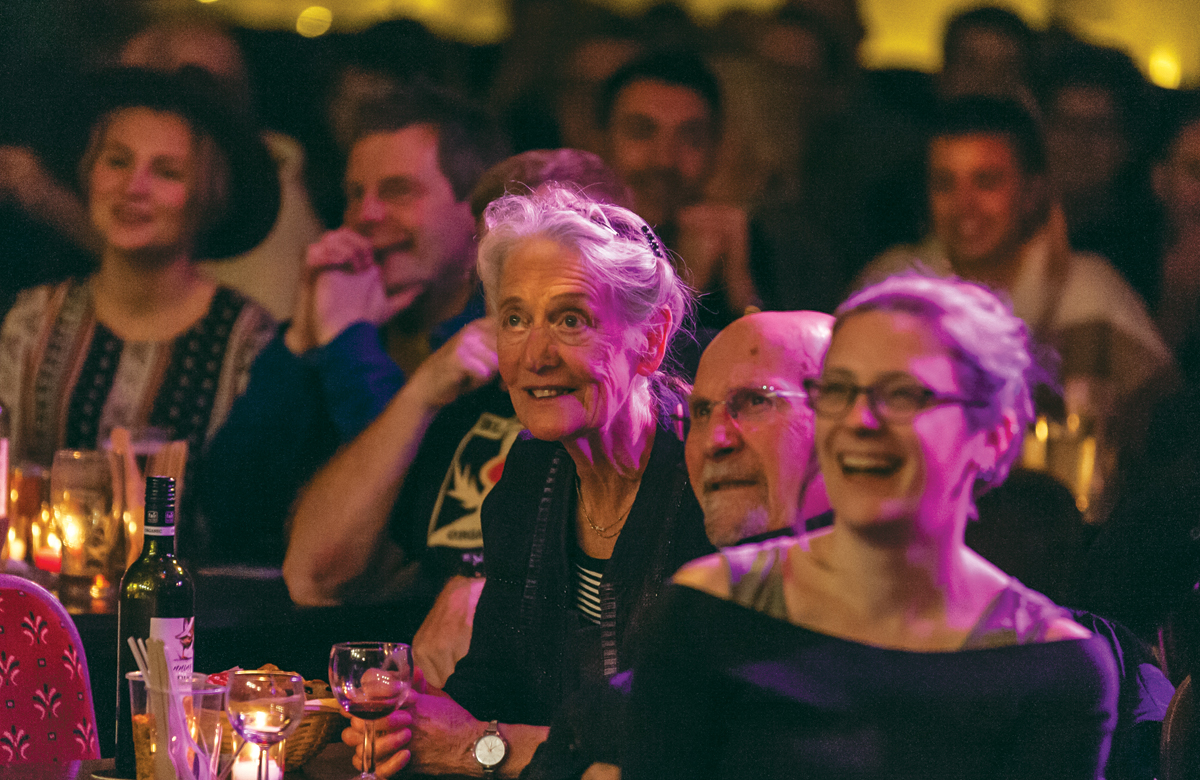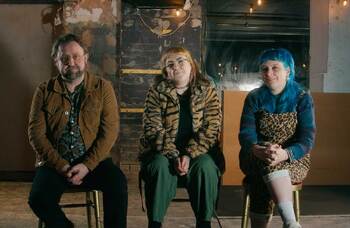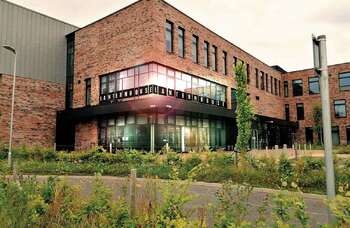Alan Lane: ‘The skills we are using are the same ones we use to make shows’
In a special supplement titled ‘How the arts can survive the coronavirus crisis’, Fergus Morgan speaks to Slung Low artistic director Alan Lane about how the Leeds-based community theatre company is extending its remit to meet local needs during the coronavirus crisis
For many theatremakers across the country, the ongoing coronavirus pandemic has meant an indefinite hiatus – cancelled tours, postponed productions, closed buildings. For Slung Low, however, it has meant the opposite. The Leeds-based, community-focused company is “as busy as we have ever been” according to artistic director Alan Lane.
The reason: in late March, Leeds City Council asked Slung Low to be the lead organisation to coordinate community care in Beeston and Holbeck, the ward of Leeds in which its building – the Holbeck, the oldest working men’s club in Britain – is situated.
“We said yes, thinking it would take about three weeks before anything happened because it was the council,” Lane says. “But within about three hours a spreadsheet of thousands of volunteers arrived and two minutes after that a load of referrals for people who urgently needed food delivering or prescriptions collecting or laundry doing arrived. We’ve been doing that ever since.”
Ten days before, Lane had taken the same decision that hundreds of other arts organisations across the country had to take. He shut the Holbeck to the public, closed the club’s bar and cancelled any upcoming performances from visiting artists.
“People right now are desperate for someone to ring them and tell them a story in which they are not absolutely terrified”
“We spent the next day securing all the people we were responsible for,” he says. “The bar staff, the cleaning team, all the artists who were going to visit with shows. We scrapped around to find enough money to make sure everyone was all right. Once we’d done that, we wanted to help any way we could.”
Even with Slung Low’s own funding secure – the company is supported by Arts Council England as a national portfolio organisation, and by Leeds City Council and the Paul Hamlyn Foundation – its new role is quite a challenge. Armed with little more than a few thousand pounds from the council, a big blue van, a camouflaged Land Rover (a relic from the company’s 2015 show Camelot: The Shining City) and a whiteboard, the company is coordinating community care in one of the most deprived suburbs of Leeds, an area of more than 20,000 people.
“One third of our day is scurrying around finding food,” Lane explains. “We get as much food as we can scrounge and when we can’t scrounge it, we hit the shops and buy it. Then another third of our day is organising our volunteers. And then the rest of it is putting the two together. Input has to meet output.”
The day we speak, Lane has already made a few food-bank deliveries and picked up a pallet of supplies left at a children’s centre by Leeds United Football Club. Slung Low’s technical manager Matt Angove has taken the van to Costco to collect any excess food. The afternoon and early evening will be spent driving around making deliveries, collecting laundry, and dropping off prescriptions.
On top of all that, Lane makes sure to call every referral the company receives. First to check he has the right information about what they need, and secondly “just to chat to them and explain that whatever it is they need will be with them by six o’clock”. It is, he says, “the hardest and best part of my day”.
"We would keep going until the wheels of the van fell off and we had no money left"
The task Slung Low has taken on is a huge responsibility, but it is one Lane and his team didn’t even need to think about before they agreed to take it on. Commitment to the community is in the company’s DNA, from its epic, accessible productions, to its pay-what-you-decide ticketing, to the Cultural Community College it opened in 2018.
“We know who we are and we know what we are for, and this was just an extension of that,” says Lane. “There are people in our community who need food and we have a van and a bank account full of money. It’s much more sophisticated than that now, but if it was only that, we would keep going until the wheels of the van fell off and we had no money left. And after that we would start shoplifting probably.”
Providing community care is also a natural extension of the company’s skills as theatremakers, according to Lane. The company is used to telling stories that involve the surrounding community, and stories are what people really need right now. Not stories as in live-streamed shows (although Slung Low is still doing that as part of the National Student Drama Festival’s scaled-down online programme), but stories in a wider sense. Stories that include people, that reassure people and give them the strength to carry on.
“Those qualities of leadership, of listening, of empathy, of telling a communal story that everyone feels they can fit into and be courageous as a result of – that is our business,” Lane says. “People right now are desperate for someone to ring them and tell them a story in which they are not absolutely terrified.”
He adds: “The skills we are using are absolutely the same skills we use to make our big shows and big set pieces, they are just being presented differently. I honestly do not see the difference between doing what we are doing now and what we usually do. Of course, I see that the mechanics are profoundly different, but the actual drive, the core spirit, is the same.”
This content is supported by Arts Council England
‘Supported by’ is used to describe editorially independent content. Supporters may suggest the subject that is covered, but have no say in the editorial produced, which is written and edited by The Stage’s journalists to the same standard as all our editorial, with no copy approval given.
Opinion
Recommended for you
More about this venue
Opinion
Recommended for you
Most Read
Across The Stage this weekYour subscription helps ensure our journalism can continue
Invest in The Stage today with a subscription starting at just £5.99
